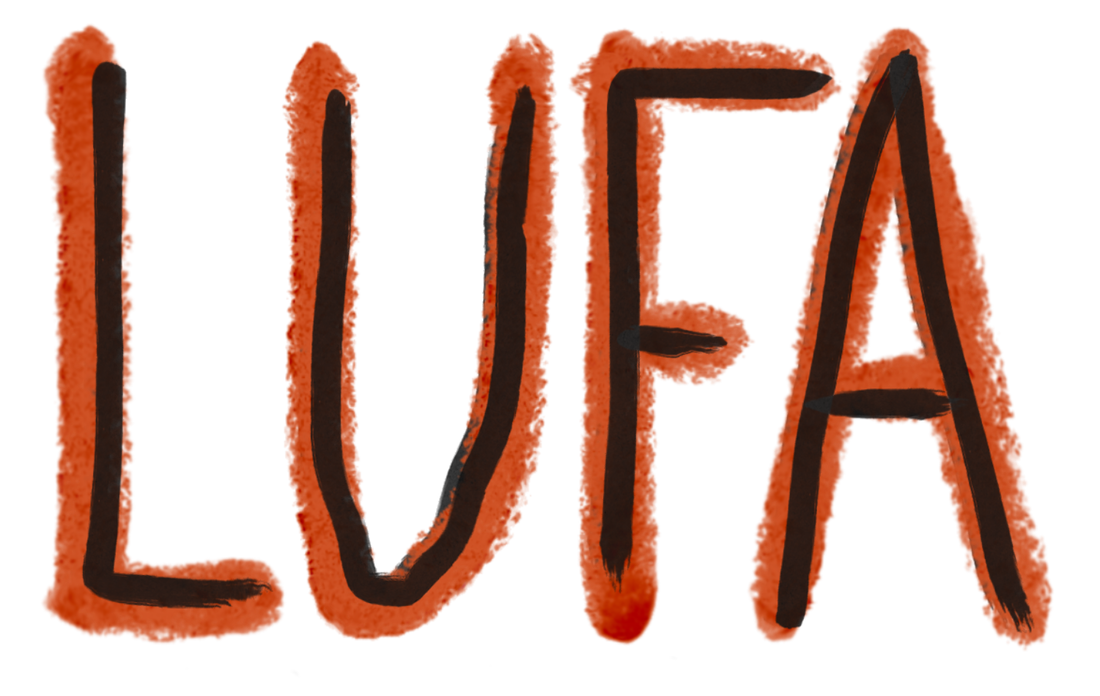|
DePaul LUFA: Lab for Urban Forestry in the Anthropocene members and Environmental Studies majors Nicole Puka and Lukas Gilkeson recount their experience out doing fieldwork in Northwest Indiana as a part of Dr. Jess Vogt’s CommuniTree research. 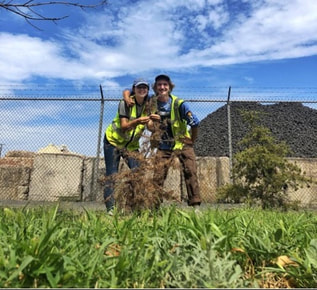 During the summer of 2021, Lukas and I drove out to CommuniTree planting sites around Northwest Indiana to inventory some of the 8,000+ trees the initiative has planted since 2017. I was usually in charge of filling out our data collection form through a program and app called EpiCollect, while Lukas took measurements of each tree’s DBH, caliper, total height, and height to crown. Data collection didn’t always go as smoothly as we wanted it to! After finishing up data collection at a site right next to Lake Michigan (Marquette Park), Lukas and I were greeted with a sudden downpour. While the rain was welcomed in the heat, we didn’t quite enjoy being soaked. 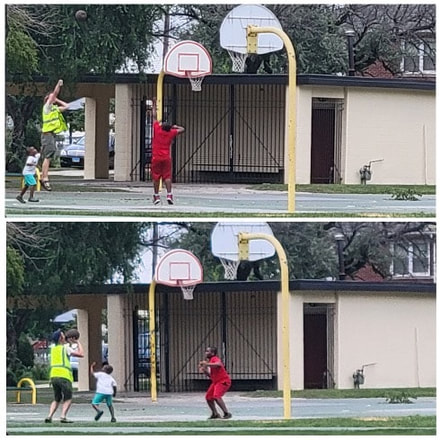 Lukas has a knack for adding fun to fieldwork. From jumping in a lake on a hot day to swinging from ropes during our breaks, he made our heat exhaustion seem nonexistent. Lukas was also great at making friends! After finding a fairly deflated and barely-bouncing basketball at Sunnyside Park in East Chicago, Lukas threw some hoops during our lunch break. Two nearby kids decided to join in the fun! The kids say they won, but Lukas won’t admit to it. ;) 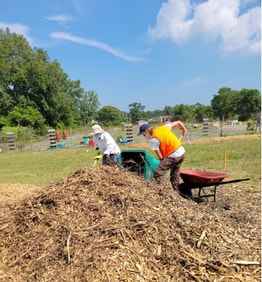 Meeting members of the communities that we were inventorying in was one of our favorite parts of fieldwork. During a visit to what we thought was a site under the Gary Water Tower, we were surprised with a beautiful community garden. "Farm-her" Carmen Cita McKee welcomed us to Oases Botanic Gardens with open arms, giving us an in-depth tour of the gardens’ trees and plants and explaining the positive impact the gardens have on the local community. She also asked if we could help her mulch, so of course we said yes! Carmen would like to let others know that the gardens are a great fit for community or business projects, volunteer opportunities, event hosting and more. She welcomes you to follow the gardens’ Instagram: @oases_botanic_gardens! 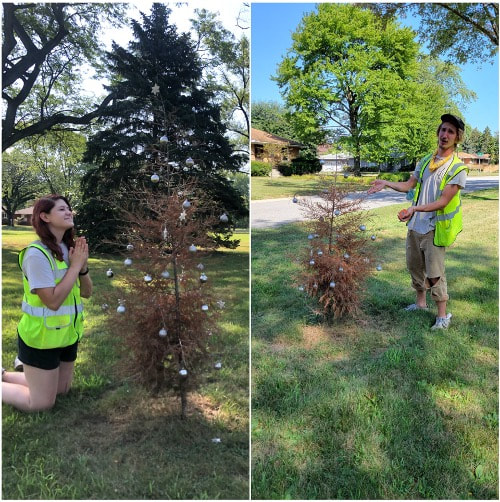 Lukas and I loved hearing stories from residents. We spoke to everyone we could, but most of the time they would come up to us to ask what we were doing! These individuals clearly loved their trees; many of them told us they never forget to water, and others showed their affection by displaying decorations around their tree. These moments always made our workday so much more exciting and left us smiling for the rest of the day. Lukas and I love talking about our fieldwork experience so we invite you to chat with us! Please enjoy some of the photos we took during fieldwork.
0 Comments
This summer, we've welcomed to the LUFA team two new students who are doing fieldwork in Northwest Indiana as part of our CommuniTree research. Nicole Puka and Lukas Gilkeson (see their bios here) are conducting an inventory of some of the 8,000+ trees planted by the CommuniTree initiative. Nicole is our tree protocol expert: She spent May and June looking through the scholarly literature and existing tree inventory protocols to develop the protocol the team is using. The final protocol went through lots of revisions based on feedback from several meetings with CommuniTree partners and then testing during field work training at the beginning of July. According to the final version, at each tree CommuniTree planted, the team will document tree location and mortality status; verify species with CommuniTree records; measure the diameter at breast height, caliper (diameter 6” from the ground), total tree height, and the height to the bottom of the tree’s crown; look for and document any evidence of pests or diseases; assess mulching, pruning, or staking (maintenance) needs; categorize planting area type and ground cover around the base of the tree; and make a variety of tree condition assessments including crown dieback, lower trunk damage, and any other visible damage. A copy of the full protocol will be available from the CommuniTree project page soon. Lukas is our GIS database expert: He spent May and June gathering pre-existing tree location data from CommuniTree partners, including the Student Conservation Association (SCA), Northwestern Indiana Regional Planning Commission (NIRPC), Wildlife Habitat Council, and others, and collecting all this information into a single file of all CommuniTree tree points, and loading the data into ArcGIS Online for viewing during fieldwork in the ArcGIS Explorer app. For some planting sites where individual tree points weren’t available, Lukas compiled lists of sites with tree numbers and species information, and the team will gather precise location data on site during fieldwork. Lukas also pulled together a geodatabase of not only tree location data but existing land use/land cover data, U.S. Census data, and other social-ecological data, which will be used during postprocessing and data analysis this fall. Lukas is also the driver during field work, getting the team to and from Northwest Indiana 3-4 times per week using the DePaul Environmental Science and Studies Department van. Nicole and Lukas then worked together to set up a form for tree data collection in EpiCollect5, a free spatial data collection software that allows us to set up a custom data collection form for this project. We chose to use EpiCollect over a variety of other possible data collection apps (e.g., ArcGIS/ESRI’s Survey123, iTree Eco) because we wanted a free, easy-to-customize form and application that could be turned over to CommuniTree partners for their own future use after summer data collection is over. In the first week of July, we tested the protocol down at Lincoln Elementary School in East Chicago with the help of Drew Hart, the US Forest Service Chicago Natural Resources Liaison and a key CommuniTree organizer; Joe Exl of the Northwestern Indiana Regional Planning Commission (NIRPC), a CommuniTree “backbone” organization, and the four members of the Student Conservation Association (SCA) Calumet Tree Conservation Corps. The SCA crew spends most of their summer months working on tree watering, mulching, and pruning, but we’re excited that this summer they will also be helping us out on the research by doing some tree inventorying whenever they can! Thank you, SCA! So what will be doing with the data that Lukas, Nicole, and the SCA gather this summer? Come this fall, we’ll be analyzing the data to figure out what social-ecological factors might be influencing the survival of CommuniTree-planted trees. Learn more on the CommuniTree research project page here. And stay tuned for more updates throughout the summer! LUFA research students Greg Skora, Erik Espeland, and Sam Conrad presented their research at the DePaul University 14th Annual Natural Sciences, Mathematics, and Technology Undergraduate Research Showcase on Friday, November 4th. The Showcase is the annual DePaul College of Science and Health event at which over 75 students present research performed for senior thesis projects, as part of the Undergraduate Research Assistantship Program (URAP), through independent study, or during fellowships and internships at organizations across Chicago and the country.
For more details on what LUFA students presented, check out the PDFs of LUFA student posters on the Neighborhood Tree Planting and Climate Change project pages! |
AuthorJess Vogt, Associate Professor, Env. Science & Studies, DePaul University Archives
July 2022
Categories
All
|
1110 West Belden Avenue Chicago Illinois 60614
|
Site last updated: August 9, 2018.
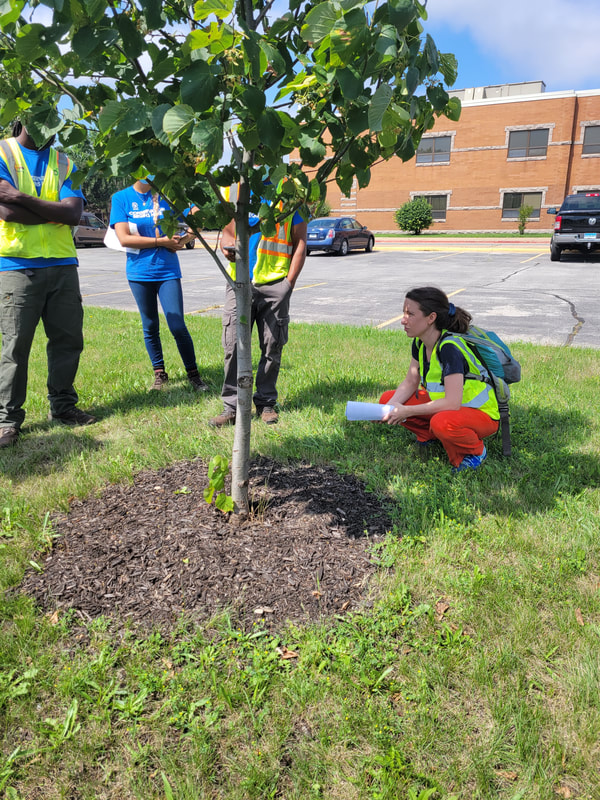
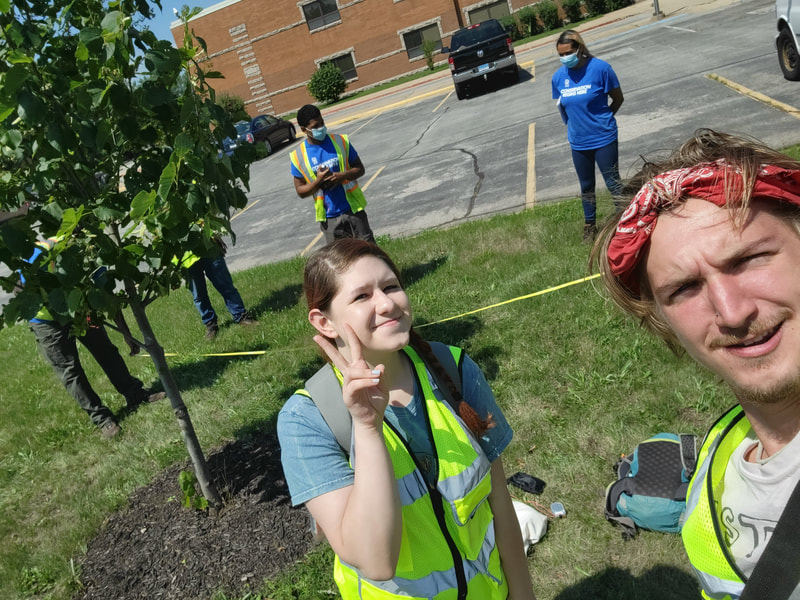
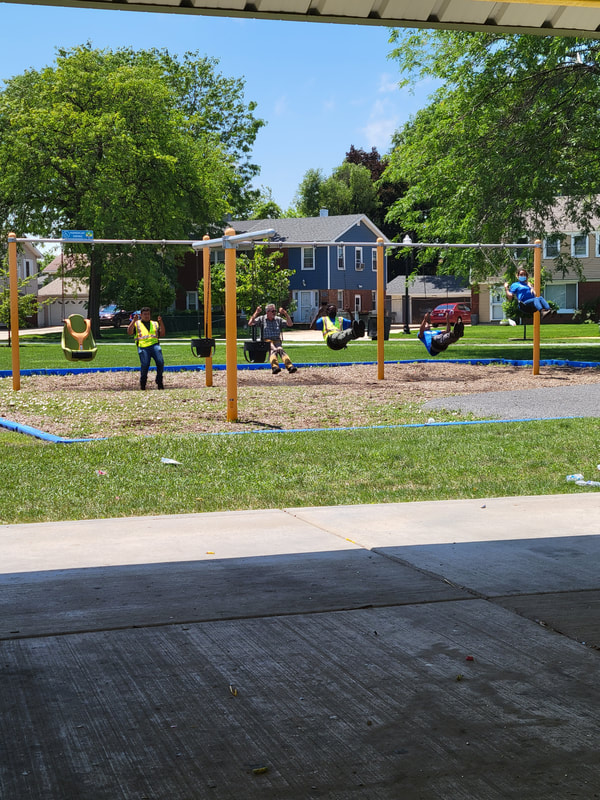
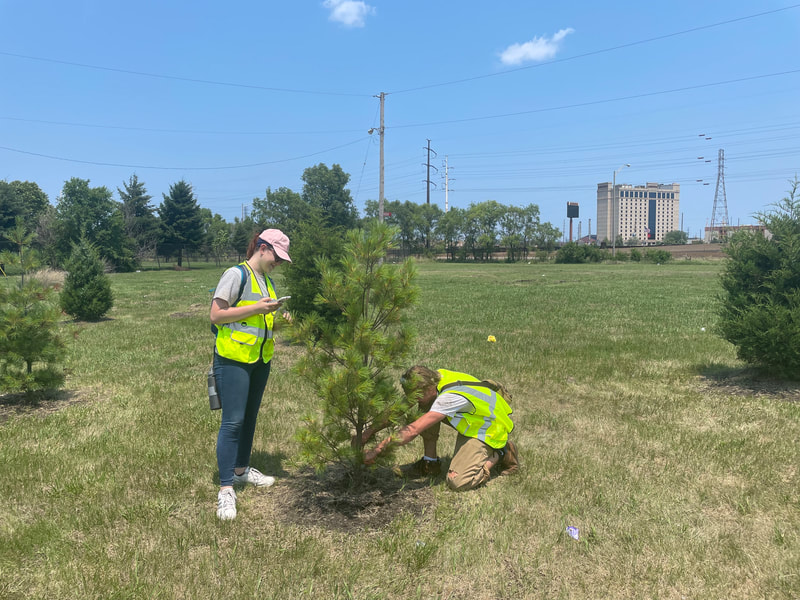

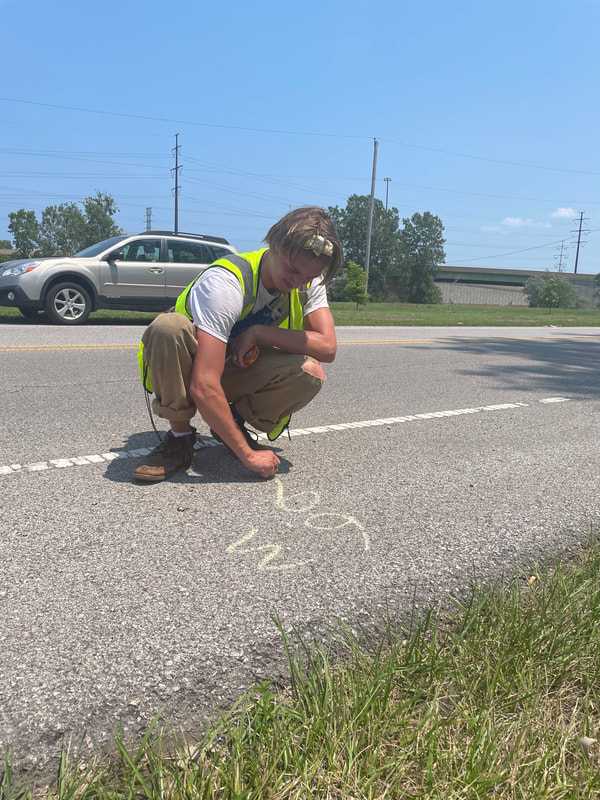
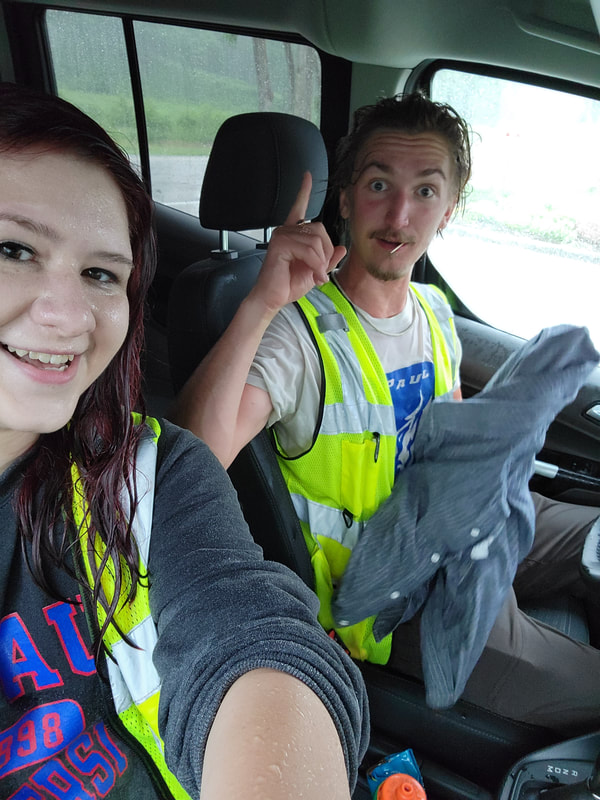
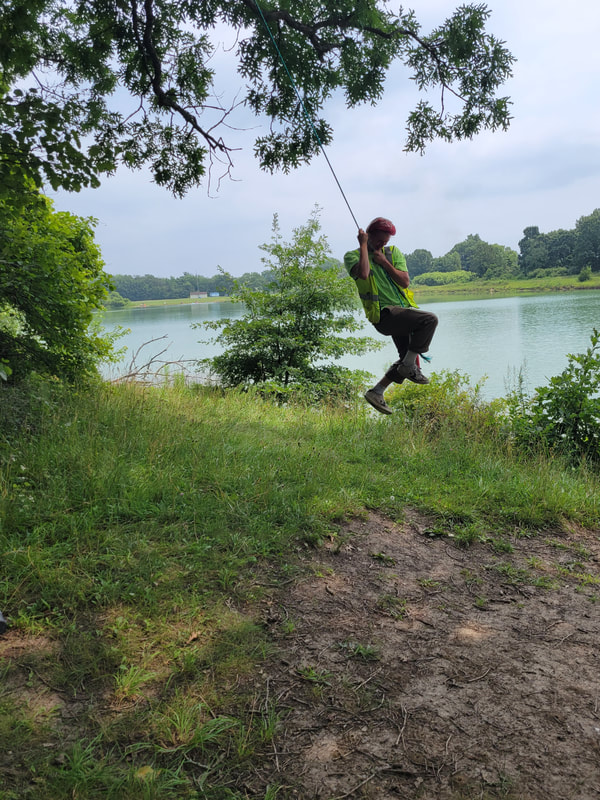
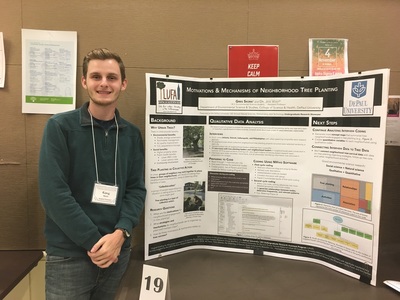
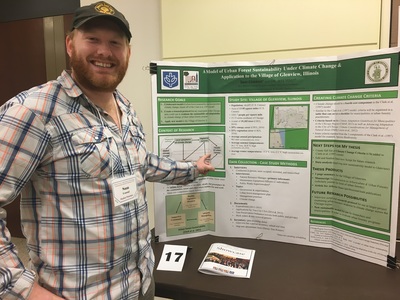
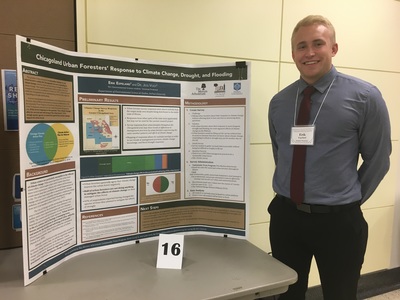
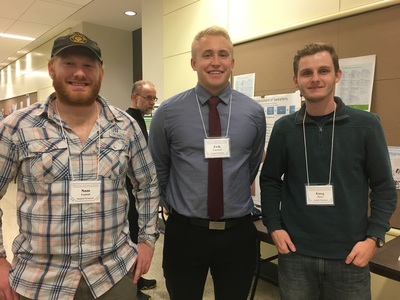
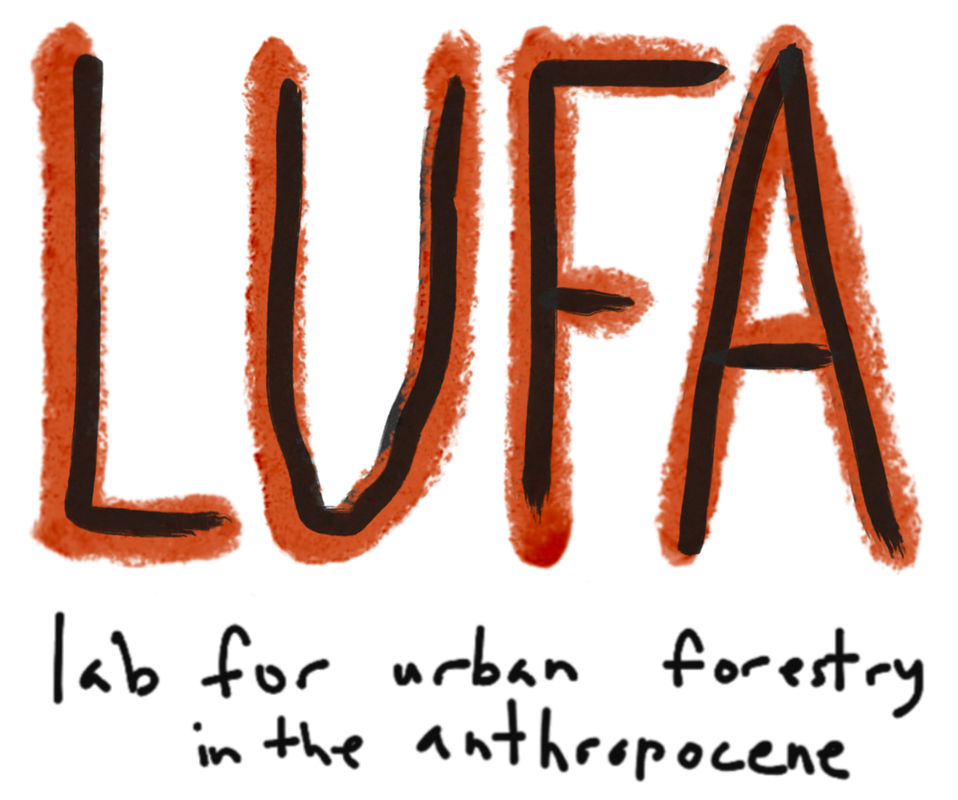

 RSS Feed
RSS Feed
